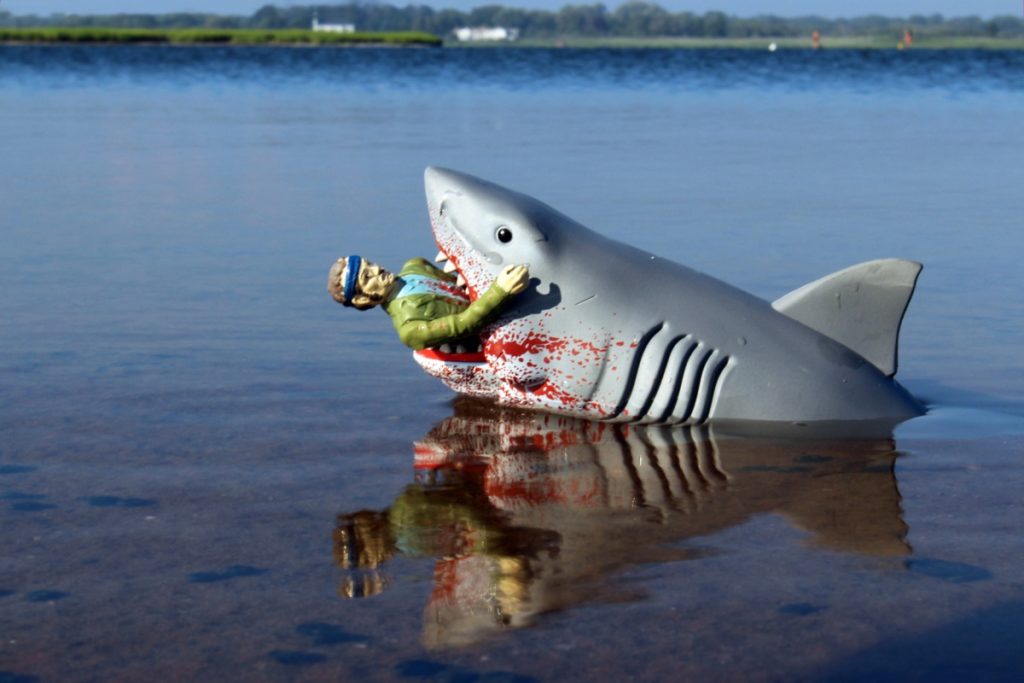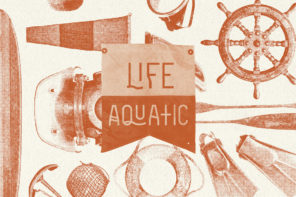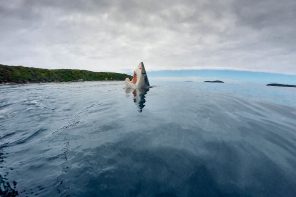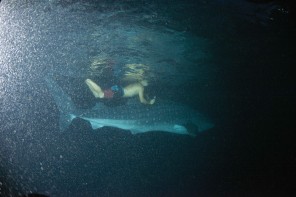The Betting Line on Shark Attacks
What are the odds of being killed by an asteroid?
The odds are, well, astronomical. But consider this: It’s more likely than being killed in a shark attack. Regardless of the nightmarish predispositions JAWS placed in our heads back in the summer of ’75. Other things far more likely to kill you than a shark, according to James Murphy, veteran oddsmaker, sportsbook consultant and international gambling expert—he’s the guy Vegas goes to when they want odds on something odd: flesh-eating bacteria, earthquake, a bee sting, an accidental gunshot and the sun if you stay out in it too long.
Basically, if you are betting “shark attack,” the house will take your money, thank you very much.
We can all likely concur sharks are quite daunting, what with the rows of razor-sharp teeth and reputation as prehistoric killing machines as posited by so many popcorn sea monster-movies following in Jaws’ wake. Especially when the churning wave break takes away the water clarity safety net. Murky grey-brown salt water and a strong rip current (which is actually dangerous—we’ll get back to you on the odds it’ll kill you, but you can bet it’s greater than a shark attack) instill uncertainty and that primal fear of the unknown. Often in many that stirs images of a dorsal fin cutting through the water.
But the truth is far from a movie—and media-driven hysteria. Unprovoked shark attacks are very rare—fatal ones much more so.
Although Australia is home to the world’s most dangerous animals and Margaret River is filled with great whites, Florida takes the title for the shark attack capital of the world. That’s right, New Smyrna Beach, just thirty minutes south of spring break favorite Daytona Beach, holds the record for the most shark attacks per year.
Don’t cancel spring break just yet; the chances of dying in an unprovoked shark attack are 1 in 3.7 million if you live within 100 miles of a coast. For all those landlocked Americans, your chances are 1 in 7 million—and the majority of shark attacks occur while that unlucky human is surfing, but even the number of attacks related to surfing are statistically insignificant in the grand scheme of things.
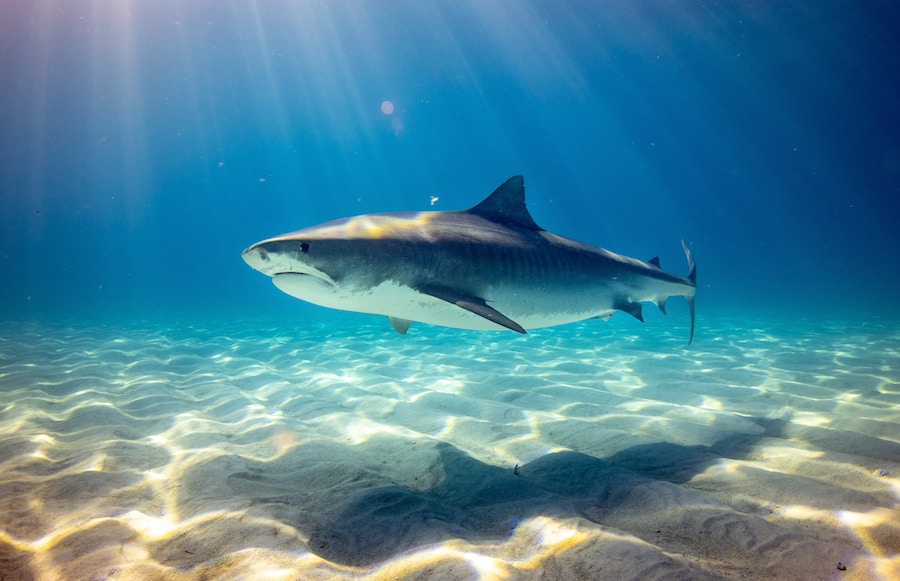
Summer of Shark Attacks?
In 2017, the media hooked itself on the “summer of shark attacks” story. The popular narrative about shark attacks being abnormally high that year was more about getting clicks than facts. In reality, 2017 was an average year for shark attacks and was the second consecutive year listed with no fatalities.
Another thing you’ll find in the Sunshine State besides spring breakers with a higher than average chance of being attacked by a shark is The Florida Museum of Natural History which houses the International Shark Attack File, and its database manager Lindsay French said nothing makes 2017 stand out as a shark feeding frenzy. “It really was just an average year…While we don’t put too much emphasis on year-to-year changes, a slight increase is expected as beach tourism and water sports gain in popularity. Year-to-year variability in oceanographic, socio-economic and meteorological conditions significantly influence the local abundance of sharks and humans in the water and, therefore, the odds of their encountering one another.”
It’s not that there are less discriminating sharks in New Smyrna Beach than Margaret River, there’s just more opportunity.
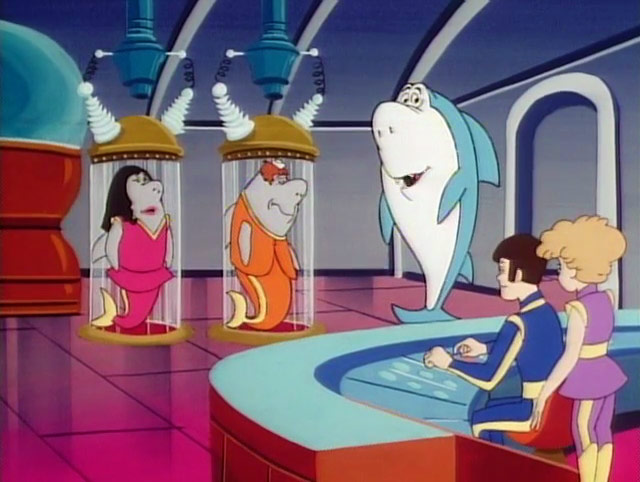
Peacefully co-existing.
Odds Are
Meeting one’s demise by flu was once a very real concern but the advent of the flu shot has reduced a once deadly illness to more of a nuisance.
So, visualize this: Getting the flu. Crappy. Lots of crumpled kleenexes. Nobody necessarily wants it, but you’d probably wish worse upon your arch nemesis. Even if you don’t get a flu shot, a quick cycle of antibiotics will get you back on track in no time.
Now visualize this: Getting attacked by a shark. Viewer discretion advised.
Here’s the point: The latter might make better copy than the former, but the odds of being killed by a shark are 1 in 7 million. The odds of being killed by the flu are 1 in 70.
The odds of being killed by a shark are 1 in 7 million. The odds of being killed by the flu are 1 in 70.
The odds of being killed by drowning in your bathtub are 1 in 840,000, and to answer the question that started it all, the odds of being killed by an asteroid are 1 in 1.9 million. Both are far more likely than a fatal shark attack.
But someone shouting “no anti-slip bathmat!” doesn’t capture the public imagination quite like the call “shark in the water” at a public beach on the fourth of July, no matter what the calculated odds may be.
Beachgoers, fellow surfers, shark enthusiasts or phobists; whether you are waist deep off the coast of Haleiwa or hanging ten in an Atlantic swell, you have far more to worry about than being attacked by a shark.
So, as Suzanne Collins once graciously wrote… may the odds be ever in your favor.
Here are your odds of being killed by various things as determined by Mr. James Murphy.
Odds of being killed… |
|
|---|---|
| by the flu | 1 in 70 |
| in a car accident | 1 in 111 |
| by accidental gunshot | 1 in 8,359 |
| by sun/heat exposure | 1 in 13,729 |
| by a tornado | 1 in 60,000 |
| by a bee sting | 1 in 79,842 |
| by an earthquake | 1 in 110,000 |
| by drowning in your bathtub | 1 in 840,000 |
| by a flesh-eating bacteria | 1 in 1 million |
| by an asteroid | 1 in 1.9 million |
| by a shark attack | 1 in 1.9 million |
| by a foreign born terrorist in the US illegally | 1 in 46.1 million |

